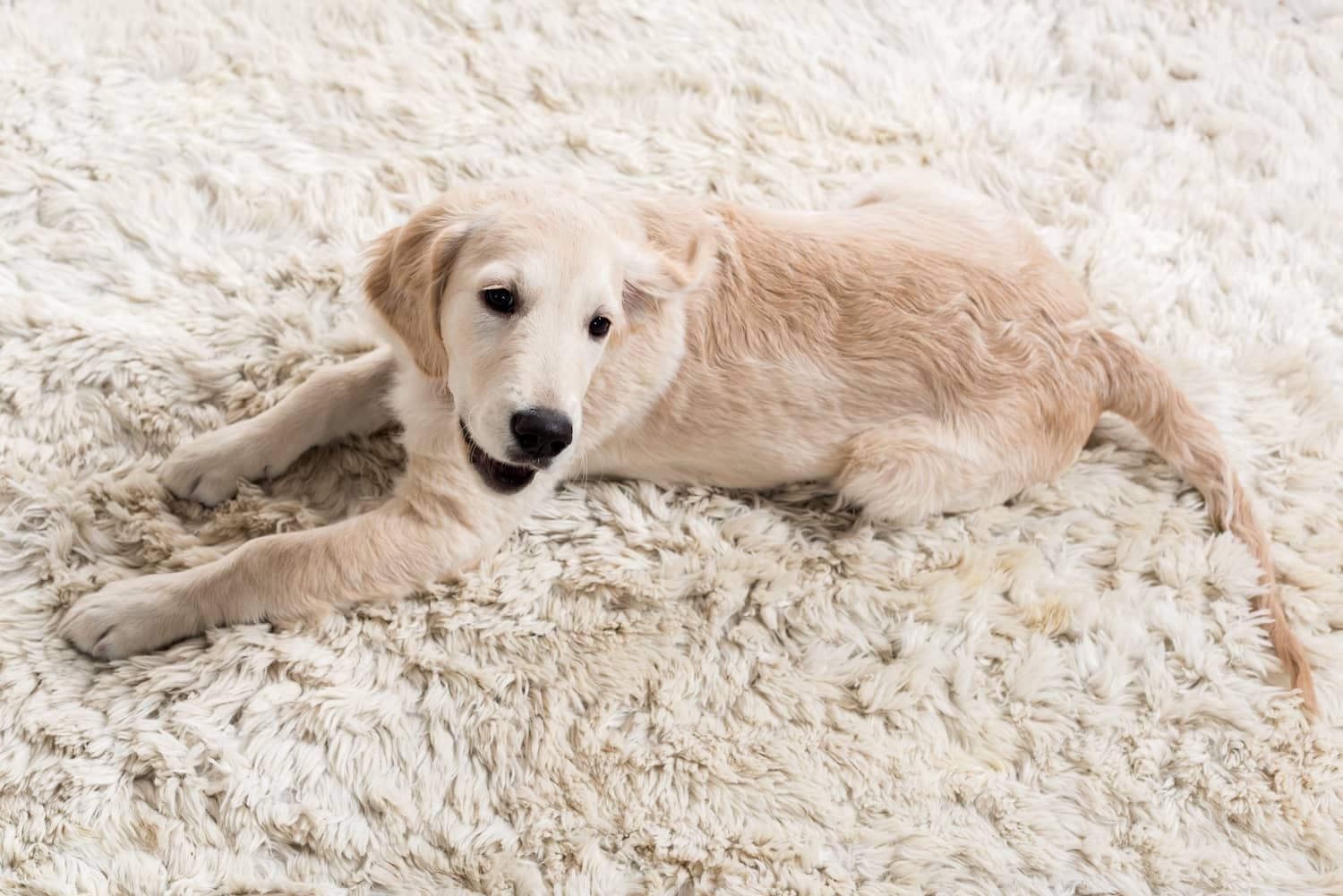
Understanding Canine Diarrhea: Beyond the Mess
Diarrhea, characterized by frequent passage of loose, watery stools, disrupts a dog’s digestive system and can be a messy inconvenience for pet owners. However, beneath the unpleasantness lies a potential communication channel. Diarrhea can be a sign of an underlying issue within your dog’s digestive tract. While a healthy canine digestive system efficiently breaks down food and absorbs nutrients, various factors can disrupt this process, leading to diarrhea.
Dietary Indiscretion: The Common Culprit
The most frequent cause of diarrhea in seemingly healthy dogs is dietary indiscretion. This simply means your dog has ingested something that irritates their digestive system. Common culprits include:
- Table Scraps: Fatty human food, processed snacks, or dairy products can overwhelm a dog’s digestive system, leading to diarrhea.
- Sudden Diet Changes: Introducing a new food too quickly can upset your dog’s stomach. A gradual transition over several days is recommended.
- Garbage Raiding: The allure of enticing morsels in the trash can be irresistible for some dogs. Unfortunately, scavenging can lead to the consumption of spoiled food or inedible objects, both of which can trigger diarrhea.
- Ingesting Foreign Objects: Curious pups might swallow sticks, toys, or other non-food items. These foreign objects can irritate the digestive tract and cause diarrhea.
In most cases of dietary indiscretion, the diarrhea resolves on its own within a day or two. However, if the diarrhea persists or worsens, it’s crucial to seek veterinary attention to rule out other potential causes.
A Multitude of Causes: Unveiling the Underlying Factors
While dietary indiscretion is a frequent culprit, diarrhea in seemingly healthy dogs can also stem from various medical conditions. Here are some potential causes that might not present with other obvious symptoms initially:
- Intestinal Parasites: Parasites like roundworms, hookworms, or giardia can irritate the intestinal lining and cause diarrhea. Puppies are particularly susceptible to parasitic infections.
- Inflammatory Bowel Disease (IBD): This chronic inflammatory condition of the intestines can cause intermittent diarrhea, often accompanied by abdominal pain and weight loss.
- Bacterial Overgrowth: An imbalance in the gut microbiome, the natural community of bacteria within the intestines, can lead to diarrhea. This imbalance can occur due to antibiotic use, dietary changes, or underlying health conditions.
- Food Allergies or Intolerances: Some dogs may have allergies or intolerances to specific ingredients in their food, leading to chronic diarrhea.
Taking Action: When to Seek Veterinary Attention
While witnessing your dog’s case of the “runs” can be concerning, it’s not always an immediate cause for alarm. However, there are certain situations where seeking veterinary attention becomes crucial. Here are some key factors to consider:
- Duration of Diarrhea: If your dog’s diarrhea persists for more than 24 to 48 hours, a vet visit is recommended. Prolonged diarrhea can lead to dehydration, particularly in puppies and senior dogs.
- Severity of Symptoms: Bloody diarrhea, black stools, or diarrhea accompanied by vomiting, lethargy, or loss of appetite are all signs of a potentially serious condition and warrant immediate veterinary attention.
- Age and Breed: Puppies and senior dogs are more susceptible to complications from diarrhea due to their weaker immune systems. Certain breeds may also have predispositions to specific intestinal conditions. Consulting a veterinarian familiar with your dog’s breed can be beneficial.
- Underlying Health Conditions: If your dog has a pre-existing medical condition, such as kidney disease or liver disease, diarrhea can exacerbate the condition. In such cases, a vet visit is essential to ensure proper management of both the diarrhea and the underlying illness.
When seeking veterinary attention, provide your veterinarian with a detailed account of your dog’s symptoms, including the duration and frequency of diarrhea, any changes in diet or behavior, and the presence of any other concerning signs. This information will assist the veterinarian in reaching an accurate diagnosis and formulating an appropriate treatment plan.
Supporting Your Dog’s Recovery: Home Management Strategies
In mild cases of diarrhea caused by dietary indiscretion, you can implement some home management strategies to support your dog’s recovery. However, it’s crucial to consult your veterinarian before administering any medication or making significant dietary changes. Here are some tips to consider:
- Fasting: Withhold food for 12-24 hours to allow your dog’s digestive system to rest and recover. Ensure they have access to fresh water throughout the fasting period to prevent dehydration.
- Bland Diet: Once the fasting period is over, gradually reintroduce food by offering a bland diet. This might include boiled white rice mixed with plain, unseasoned chicken or boiled white fish. Small, frequent meals are easier for your dog’s digestive system to handle at this time.
- Probiotics: Probiotics are beneficial bacteria that can help restore the balance of gut flora and promote digestive health. Consult your veterinarian about appropriate probiotic supplements for your dog.
Additional Considerations:
- Monitor Hydration: Diarrhea can lead to dehydration, especially in puppies and senior dogs. Monitor your dog’s hydration status by checking their skin elasticity and gum moisture. If you have concerns about dehydration, consult your veterinarian for advice on fluid replacement options.
- Limit Activity: While complete rest might not be necessary, restrict your dog’s activity level during their recovery period. This will help reduce stress on their digestive system.
- Preventative Measures: Once your dog has recovered from their bout of diarrhea, consider implementing preventative measures to reduce the risk of future occurrences. These may include feeding a high-quality diet, avoiding table scraps, and practicing good hygiene by cleaning up after your dog promptly.
Remember, diarrhea can be a sign of a minor digestive upset or a more serious underlying condition. By understanding the potential causes, knowing when to seek veterinary attention, and implementing appropriate home management strategies, you can ensure your dog receives the care they need and gets back to their happy, tail-wagging self as quickly as possible.


